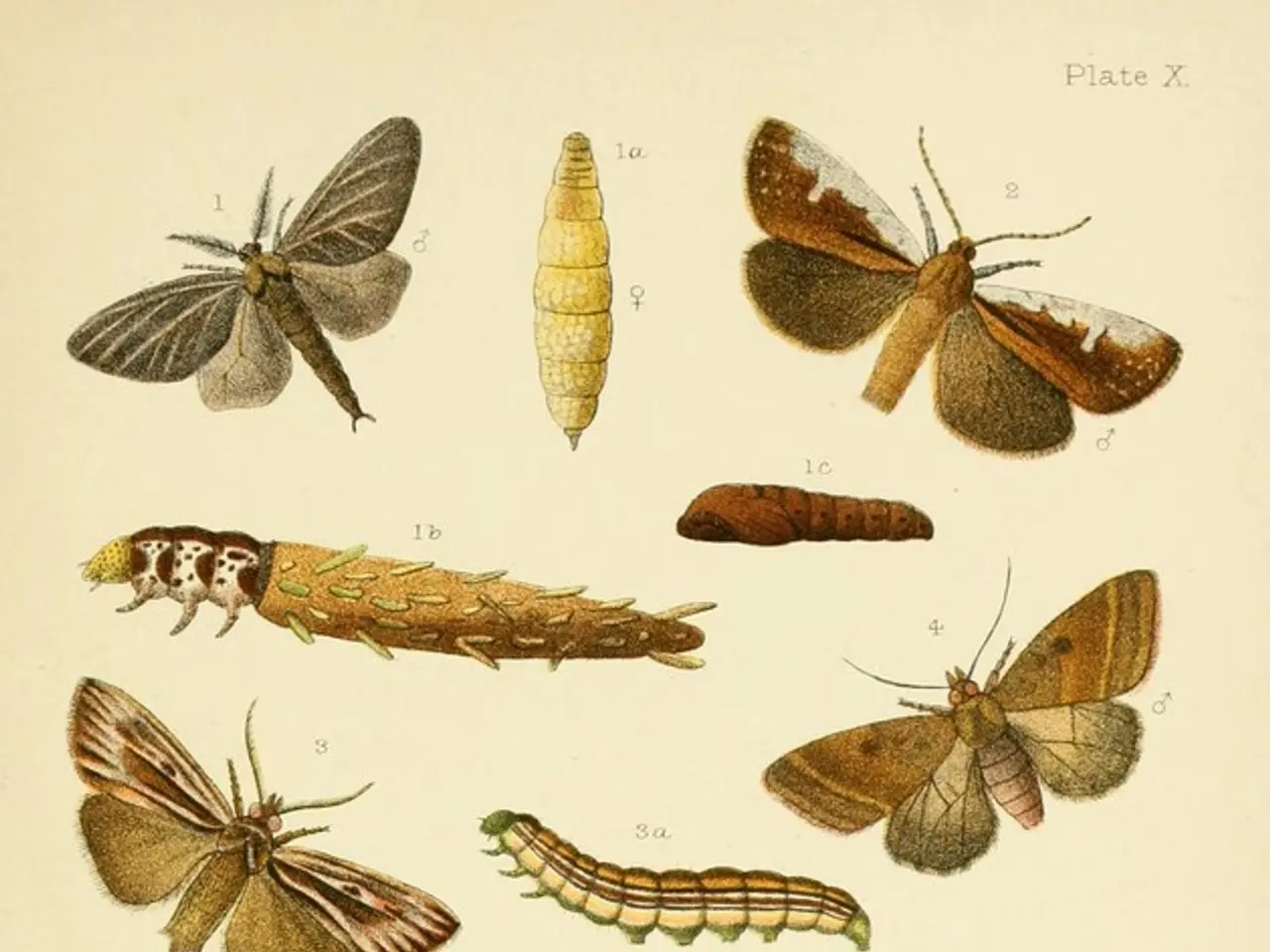Brain Limits Consumed Amount through "Neurobiotic Sense" Signals
A groundbreaking study led by neuroscientists at Duke University School of Medicine has uncovered a new mechanism of gut-brain interaction, known as the "neurobiotic sense." This system allows the brain to respond in real-time to signals from gut microbes, particularly the bacterial protein flagellin [1][2][3].
The key players in this discovery are specialized gut cells called neuropods, which detect flagellin using the receptor TLR5. When gut bacteria release flagellin during eating, neuropods sense it and quickly transmit signals to the brain through the vagus nerve, leading to appetite suppression and reduced eating behavior [1][2][3].
Disrupting this pathway, such as by knocking out the receptor for flagellin, causes mice to continue eating excessively and gain weight, demonstrating that this neurobiotic sense plays a critical role in regulating appetite and behavior [1][4]. This system represents a unique form of sensory communication whereby the brain can respond in real-time to molecular signals from gut microbes to influence feeding decisions.
The researchers tested this theory by fasting mice overnight and giving them a small dose of flagellin directly to the colon. The result was that the mice ate less, suggesting that flagellin sends a "we've had enough" signal through TLR5, allowing the gut to tell the brain it's time to stop eating [1].
Beyond appetite, researchers speculate that this neurobiotic pathway might broadly influence other behaviors and mood, as well as how the brain shapes gut microbial composition over time, but this requires further study [2][3]. While confirmed in mice, ongoing research aims to determine if similar neurobiotic sensing exists in humans.
The study, which was led by Diego Bohórquez and colleagues at Duke University School of Medicine, was recently published in the journal Nature [5]. The key player in this neurobiotic sense is flagellin, an ancient protein found in bacterial flagella. Flagellin reduces feeding independent of immune responses, metabolic changes, or the presence of gut microbiota [1][4].
In summary, the neurobiotic sense modulates eating behavior in mice by translating gut microbial signals into neural messages that curb appetite and prevent overeating, highlighting a novel mechanism of gut-brain interaction that influences feeding and potentially other behaviors [1][2][4]. The next step in research is to investigate how specific diets change the microbial landscape in the gut, which could be a key piece of the puzzle in conditions like obesity or psychiatric disorders.
- The neurobiotic sense, a new mechanism of gut-brain interaction, is fundamental in neuroscience news as it allows the brain to respond to signals from gut microbes in real-time.
- This system, discovered by neuroscientists at Duke University School of Medicine, is particularly interested in the bacterial protein flagellin and its impact on mood disorders and health-and-wellness, including fitness-and-exercise and nutrition.
- The key players in this discovery are specialized gut cells called neuropods, which detect flagellin using the receptor TLR5, transmitting signals to the brain through the vagus nerve, influencing medical-conditions such as neurological-disorders and eating behavior.
- Beyond appetite regulation, researchers speculate that this neurobiotic pathway might broadly impact other behaviors and mood, shaping the brain's influence on gut microbial composition, as well as space-and-astronomy implications for understanding the impacts of microgravity on this system.
- The study, published in the journal Nature, highlights the role of flagellin, an ancient protein found in bacterial flagella, in reducing feeding behavior independently of immune responses, metabolic changes, or the presence of gut microbiota.
- The next step in research is to investigate how specific diets change the microbial landscape in the gut, which could be a key factor in addressing issues like obesity, psychiatric disorders, and overall brain function.




